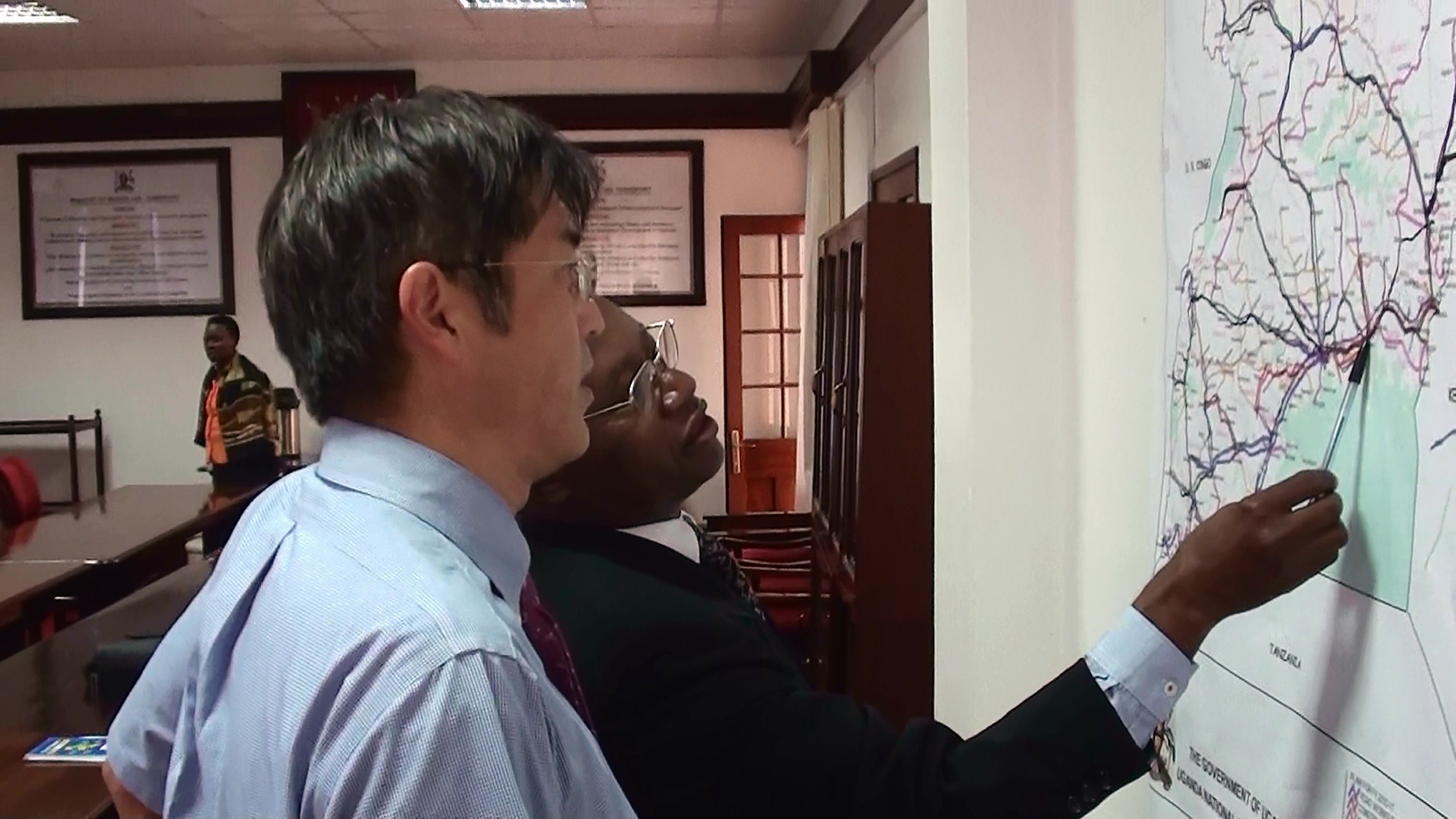Research Team Conducted Hearings on General Budget Support in Uganda
2011.10.14
As part of JICA-RI’s research project “Role of Budget Support in the Development Aid Regime,” senior research fellow Mitsuaki Furukawa and research associate Junichiro Takahata visited Kampala, the capital, and the districts of Mbarara, Masaka, Jinja, and Gulu in Uganda from August 31 to September 16. The purpose of this visit was to investigate how the public finance is spent on the local level in the country, where general budget support (GBS, an aid modality that delivers funds directly to a recipient country’s exchequer system) approach has been adopted ahead of other countries. The research team collected data through hearings with officials of the central government and local governments as well as with staff of donor agencies and NGOs.
In this project, Furukawa and Takahata have examined how macro-level budget support affects the budget composition of developing countries, and how performance of government expenditure changes with or without this intervention. Furukawa explains, “The aim of the hearings was to understand the flow of how GBS is utilized for public services and how those services actually become available in the society. For this, it was necessary to investigate how the money is spent at a local government level. Eventually, we would like to show the actual conditions surrounding GBS by comparing the results of the cases in Uganda and Tanzania -- both among the first adopters of the modality.”
The research project has so far revealed both pros and cons of this approach. Furukawa points out two positive effects. First, recipient countries’ awareness and efforts on enhancing aid effectiveness have been ameliorated in the course of implementing GBS. Second, GBS has contributed to formulating sound policies of the recipient countries through policy dialogues between them and donors, consequently improving the administrative and financial management of their central government. “Joint policy dialogues by recipient governments and donors in GBS modality seem to have helped bring reforms that had not been possible with conventional individual type of support,” he analyzes. Furukawa also mentioned additional favorable impacts such as a possibility that GBS has helped increase the local governments’ budgets and also enhanced sense of ownerships at their ends

Furukawa learning Uganda's geographical features at the Ministry
of Works and Transport
On the other hands, negative aspects include perception gap among stakeholders (such as the Ministry of Finance Planning and Economic Development, other governmental ministries and agencies, local governments and donors) and a possibility of malfunction of a budget cycle (A. planning/budget formulation, B. implementation, C. monitoring, D. evaluation, and back to A,) according to Furukawa. On these negative effects, Furukawa says; “In Uganda, its budget execution system is rigid, which prevents the use of funds across different fields, and also its budgetary process has structural problems. Additionally, its government faces a serious manpower shortage.”
The research team plans to empirically analyze the data collected through the hearings and to advance the research further. Specifically, the team will work on the following research questions: 1) Do provisions of GBS funds to national budget lead to systematic and efficient implementations of policies in the whole nation?, 2) How do distributions of funds from the central government (including GBS) affect budget execution rate of the local governments?, and 3) Is an institution at a local government level well-prepared for efficient budget executions?
Mitsuaki Furukawa
Senior Research Fellow, JICA Research Institute

事業事前評価表(地球規模課題対応国際科学技術協力(SATREPS)).国際協力機構 地球環境部 . 防災第一チーム. 1.案件名.国 名: フィリピン共和国.

事業事前評価表(地球規模課題対応国際科学技術協力(SATREPS)).国際協力機構 地球環境部 . 防災第一チーム. 1.案件名.国 名: フィリピン共和国.

事業事前評価表(地球規模課題対応国際科学技術協力(SATREPS)).国際協力機構 地球環境部 . 防災第一チーム. 1.案件名.国 名: フィリピン共和国.

事業事前評価表(地球規模課題対応国際科学技術協力(SATREPS)).国際協力機構 地球環境部 . 防災第一チーム. 1.案件名.国 名: フィリピン共和国.

事業事前評価表(地球規模課題対応国際科学技術協力(SATREPS)).国際協力機構 地球環境部 . 防災第一チーム. 1.案件名.国 名: フィリピン共和国.
scroll